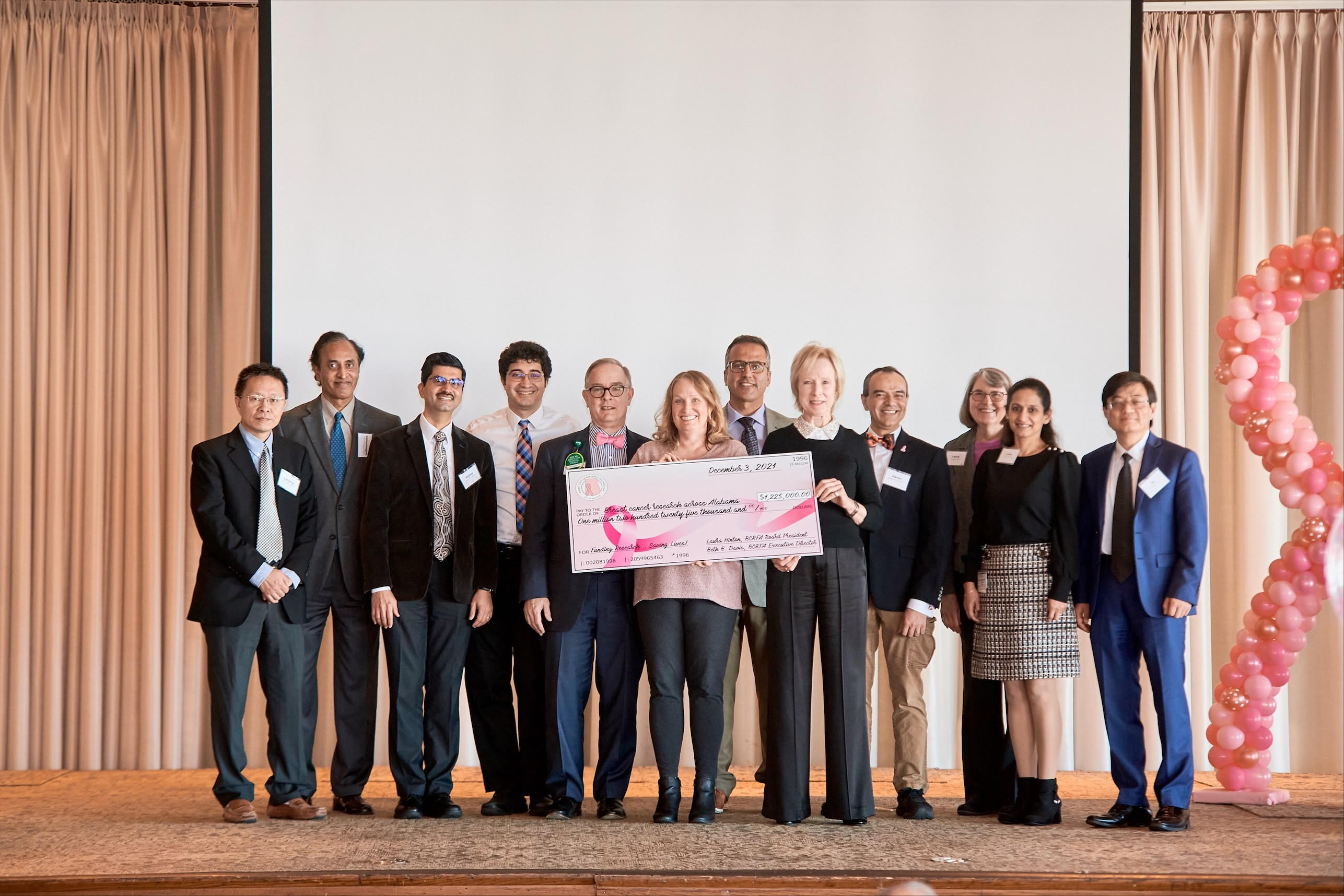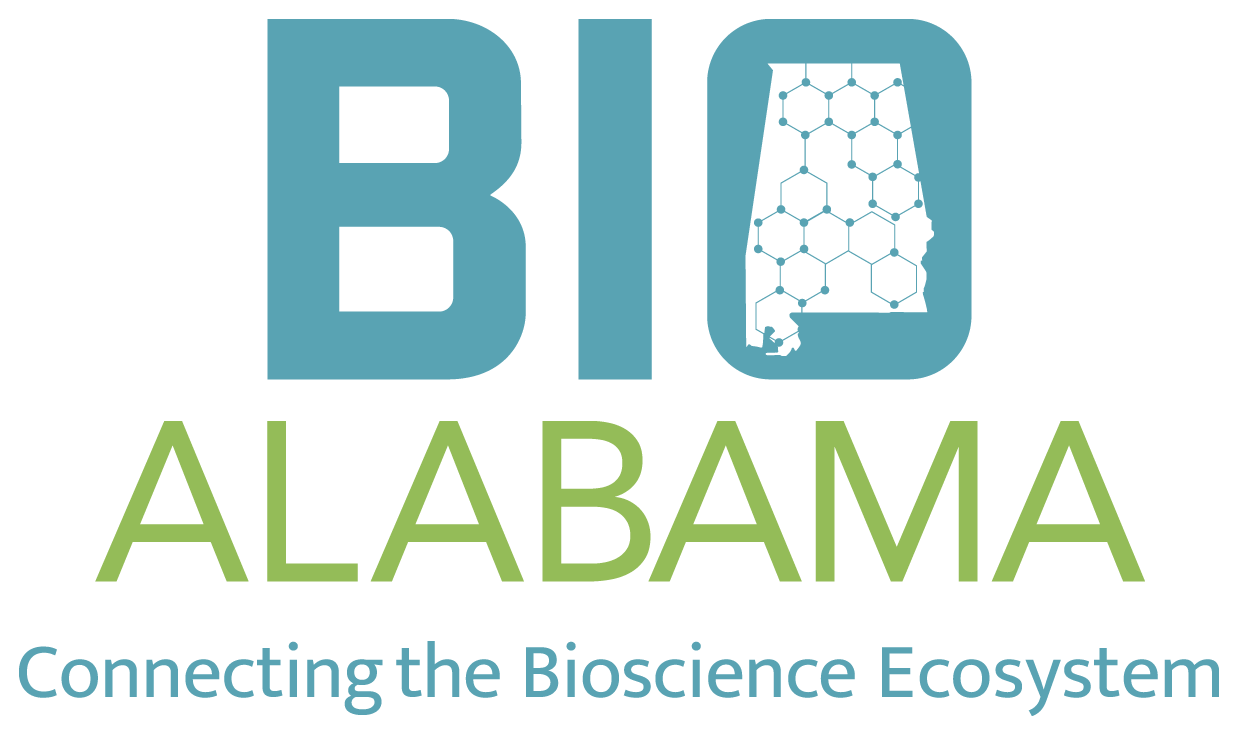CERFLUX Receives $100,000 BCRFA Innovation Award
Contact: Kathleen A. Lovelady | kal@CerFlux.com | https://CerFlux.com
 (Photographer Dustin Massey – Dustin Massey Studios)
(Photographer Dustin Massey – Dustin Massey Studios)
L-R: Dr. Lizhong Wang; Dr. Selvarangan Ponnazhagan; Dr. Rajeev Samant; Dr. Ahmed Elkhanany; Dr. Barry Sleckman; Ms. Beth Bradner Davis; Dr. Jamil Saad; Ms. Laura Hinton; Dr. Karim Budhwani; Dr. Laura Rogers; Dr. Lalita Shevde-Samant; Dr. Xu Feng
The Breast Cancer Research Foundation of Alabama (BCRFA) has awarded CerFlux $100,000 Innovation award to fast-track research and development of the CerFlux Personalized Oncology Efficacy Test (POET)
BIRMINGHAM, Ala., (December 6, 2021) – CerFlux, Inc., creators of advanced personalized medicine technology for identifying the most efficient and effective treatments for each cancer patient on an individualized basis, announced the receipt of a $100,000 grant from the BCRFA. Funding from this grant will help bolster research, development, and lab-to-life translation of its low-cost, rapid Personalized Oncology Efficacy Test (POET).
More than 3.8 million women in the US have a history of breast cancer. This year an estimated 281,550 new cases of breast cancer will be diagnosed in the US. The Breast Cancer Research Foundation of Alabama supports innovative research that will help improve outcomes of patients with breast cancer. Since 1996, they have contributed almost $12 million dollars to breast cancer research. Despite the impact of COVID-19, BCRFA donated their largest amount to date. CerFlux is honored to have their support in their mission to #CrushCancer.
What makes BCRFA support for CerFlux particularly noteworthy is the focus on lab-to-life translation of technological breakthroughs like POET in transforming cancer treatment around the world. Today, less than 3% of funded research makes such a lab-to-life leap. Further, while extensive biopharma research makes new treatment options available, the lack of tools to quickly select the right treatment for each patient on a personalized basis creates a frustrating dilemma in clinical decision-making. This is because every tumor is unique in its makeup and its response to treatment.
Without personalized predictive tools like POET, treatment is based on generalized parameters such as age, disease stage, etc. often leading to a mismatch between treatments and tumors. Consequently, about 75% of patients – nearly 3 out of 4 – must endure first line chemotherapy which turns out to be ineffective because the treatment regimen does not match the patient’s tumor. This results in lost time and a substantial physical, emotional, and financial burden.
CerFlux POET addresses this critical, urgent, and unmet need for accessible and affordable predictive technologies that identify optimal therapy regimens and strategically eliminate ineffective options. With BCRFA support, CerFlux is developing bioreactor technology to identify the most promising treatment strategies on a personalized basis using biopsy tissue from the patient’s own tumor. CerFlux already holds five patents on this technology with another five patents pending.
“Accounts of cancer date back some 5,000 years and yet, “slash, poison, and burn” continue to remain predominant approaches to treatment. Knives, salts, pastes, and heavy metals of the past have evolved into surgery, chemotherapy, radiation, and combinations of the three. Despite recent advances in the field, socioeconomic impact of cancer continues to spiral out of control with 42% of patients depleting their entire life savings in just 2 years from diagnosis. Developing better tools for cancer treatment is not merely an intellectual exercise or business driver, but a mandate for us. We have designed our patented technology so that it can be applied across the cancer care continuum: POET to better match treatments to tumors and PEER (Preclinical Estimate Efficacy Report) to predict clinical success of new therapies still under development at pharmaceutical companies. Our goal is to transform both discovery and delivery of cancer treatment,” explains CerFlux CEO Dr. Karim Budhwani.
"The BCRFA is pleased to again support the promising research being conducted by the CerFlux team," said Beth Bradner Davis, Executive Director of the Breast Cancer Research Foundation of Alabama. "Our organization's core mission is to find and fund projects that have a deep impact on breast cancer patients in Alabama and around the globe. CerFlux Personalized Oncology Efficacy Test (POET) is making great advances in treatment for cancer patients. We are proud to continue our partnership."
Predictive technologies like POET – that match each patient with the right treatment regimen BEFORE treatment is administered – will transform cancer treatment in the near-term and make a difference in the lives of patients and their families, as well as providers around the world.
About CerFlux, Inc.
CerFlux, Inc., a Birmingham, Alabama, based biotech company, is creating advanced, personalized medicine solutions to rapidly identify the most effective cancer treatments for each patient on an individualized basis. While breakthroughs in biopharma discovery are helping to produce a library of treatment options, many new therapeutics are becoming more specialized and therefore effective for smaller populations. This underscores an even greater need for matching treatments to tumors on an individualized basis; ironically, cancer is a ubiquitous rare disease. Our goal is to build solutions that quickly and clearly separate optimal from ineffective options, so clinical teams can successfully treat the disease, thereby improving treatment outcomes and quality of life for cancer patients.
Additional Information
To request collateral materials for publication or to schedule interviews with principals from CerFlux, Inc., please contact Ms. Kathleen A. Lovelady at kal@CerFlux.com for availability.

